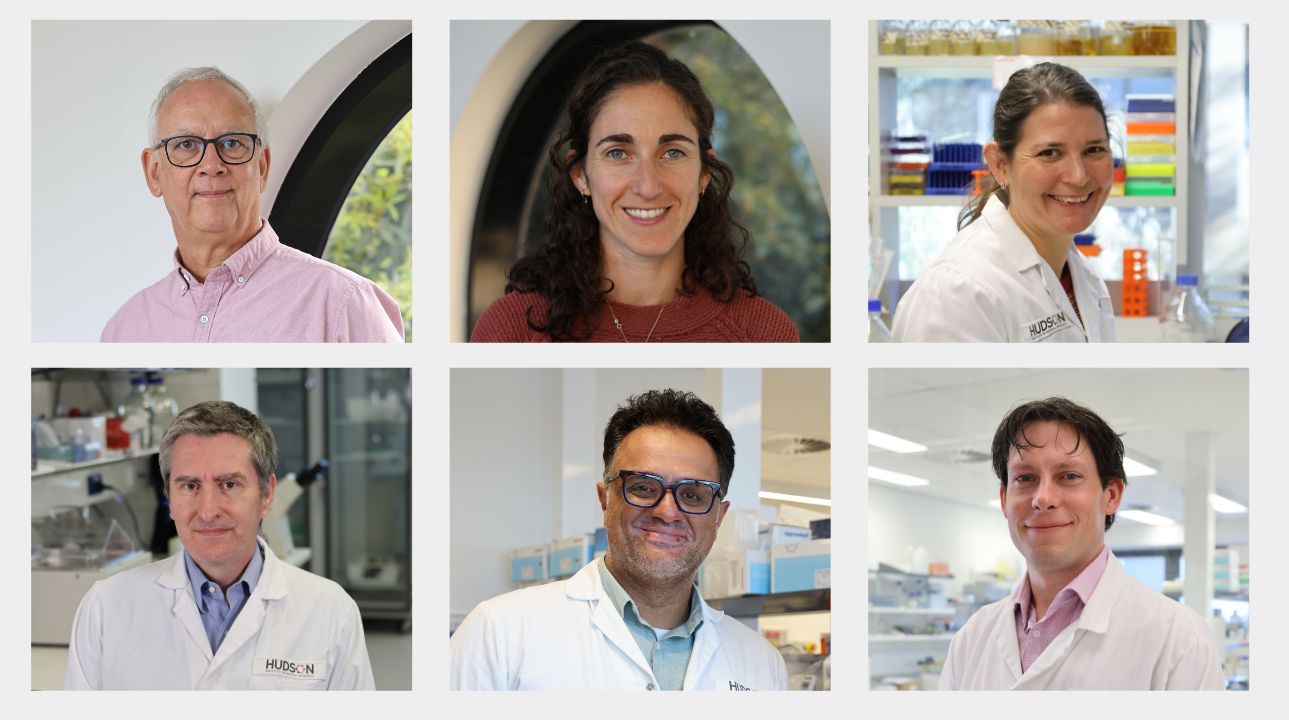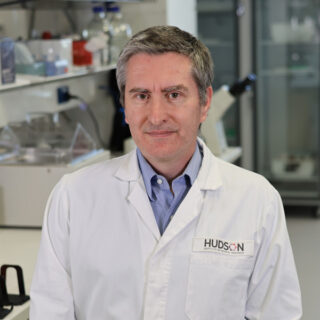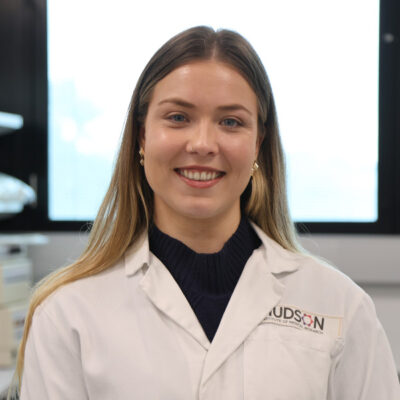2026 ARC Discovery Grant success

Hudson Institute researchers have had some great success in the recent ARC Discovery Grant rounds.
The 2026 ARC Discovery Projects include a wide range of research that will create new knowledge and provide cultural and social benefits to Australia. ARC Chief Executive Officer Professor Ute Roessner said the projects highlight the breadth and ambition of Australia’s research community.
Six of our researchers have been awarded ARC grants to further investigate research ranging from the fundamental understanding of the origin of sex differences in mammals, pathways that control immune responses to RNA, features and characteristics of immunogenic cellular dsRNA to a new microbial model to study phage biology in the gut.
Investing in research

On the origin of sex differences in gene regulation
Professor Vincent Harley, Dr Shanie Landen
On the origin of sex differences in gene regulation. Animals and humans have different traits depending on sex, such as manes present only in male lions. Many sex differences are not visible, such as in internal organs. All human organs display robust sex differences in molecular profiles, but the reason for these differences is not known. To determine whether sex differences arise due to differing sex chromosomes or differing hormones, the team developed a highly innovative rat model that can answer this. This project will elucidate which factors, sex chromosomes or hormones, drive sex differences in molecular regulators across multiple tissues, and during development, revolutionising the fundamental understanding of the origin of sex differences in mammals.

How does a cyclin dependent kinase regulate inflammatory responses to RNA?
Dr Jacki Heraud-Farlow
How does a cyclin dependent kinase regulate inflammatory responses to RNA? Cytosolic recognition of viral double-stranded RNA (dsRNA) is a highly conserved mechanism for sensing infection across organims. How the immune system effectively distinguishes between viral RNA and cellular RNA remain enigmatic. We have recently performed a genome-wide CRISPR screen which identified novel regulators of cellular dsRNA. This project will use our unique models to address the substantial knowledge gap that exists in understanding the pathways that control immune responses to RNA how dysregulation of these pathways disrupts cellular homeostasis. We bring together expertise with a strong record for impactful outcomes in RNA biology, inflammation and proteomics to address this fundamental biology.

Identification and characterization of cellular derived immunogenic RNA
Professor Carl Walkley
Identification and characterization of cellular derived immunogenic RNA. Cellular RNAs traverse the cytoplasm during their lifecycle and must be distinguishable from pathogenic RNA (e.g. virus) by the innate immune sensing system. A-to-I RNA editing of cellular RNA by ADAR1 is a critical mechanism in establishing and maintaining self-tolerance to cellular double-stranded RNA (dsRNA). However, despite a detailed understanding of the pathway mediating sensing and response to unedited cellular dsRNA, we lack definitive experimental evidence of the identity of the immunogenic dsRNA. This project directly addresses this by bringing together world leading fundamental knowledge and tools to define and experimentally validate the identity, features and characteristics of immunogenic cellular dsRNA.
Collaborative grant

A New Microbial Model to Study Phage Biology in the Gut
Associate Professor Jeremy Barr, Monash University
A New Microbial Model to Study Phage Biology in the Gut. This project explores the biology of bacteriophages that reside within the gastrointestinal tract. We aim to understand the biology, molecular mechanisms, and ecological impacts of prophages of the key bacterial gut symbiont, Bacteroides thetaiotaomicron. This is significant as bacteriophages play important roles in gut health and there is a substantial knowledge gap on phage biology and function within the gut. Expected outcomes include a new experimental microbial model system of the gut, and new molecular mechanisms and tools to manipulate gut bacteria. Outcomes from the project include high-impact publications, training of Australian scientists, and potential impacts on the biotechnology and microbiome sectors.
Collaborators | Monash University
This research was supported by | Australian Research Council (ARC)
In this article
-
 Professor Vincent Harley
Professor Vincent Harley
Sex Development -
 Dr Shanie Landen
Dr Shanie Landen
Sex Development -
 Dr Jacki Heraud-Farlow
Dr Jacki Heraud-Farlow
RNA Biology and Innate Immune Sensing -
 Professor Carl Walkley
Professor Carl Walkley
RNA Biology and Innate Immune Sensing -
 Associate Professor Pouya Faridi
Associate Professor Pouya Faridi
Translational Antigen Discovery -
 Associate Professor Samuel Forster
Associate Professor Samuel Forster
Microbiota and Systems Biology
About Hudson Institute
Hudson Institute’ s research programs deliver in three areas of medical need – inflammation, cancer, women’s and newborn health. More
Hudson News
Get the inside view on discoveries and patient stories
“Thank you Hudson Institute researchers. Your work brings such hope to all women with ovarian cancer knowing that potentially women in the future won't have to go through what we have!”




